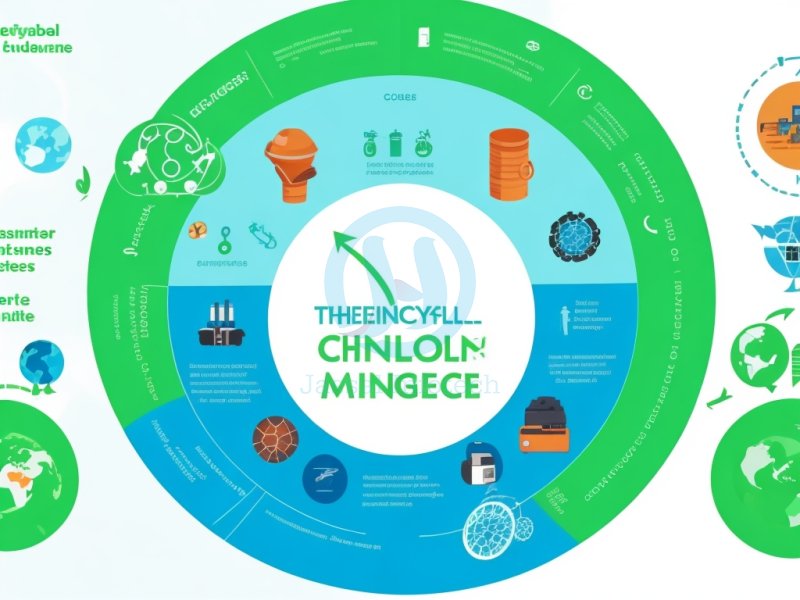
The Circular Economy: Exploring the concept of a circular economy, its potential benefits for sustainability, and its implications for businesses and consumers.
Introduction
In today's fast-paced world, the challenges of resource depletion, environmental degradation, and waste generation have
become more pronounced than ever. Amidst these concerns, the concept of a circular economy emerges as a promising
solution. A circular economy is an innovative approach that aims to minimize waste, promote sustainable practices, and
create a more resilient and regenerative economic system. In this blog, we will delve into the essence of the circular
economy, explore its potential benefits for sustainability, and understand how it impacts both businesses and consumers.
What is the Circular Economy?
The circular economy is an alternative economic model that contrasts the traditional linear "take, make, dispose"
approach. Instead of the one-way path from production to consumption to waste, a circular economy seeks to establish a
closed-loop system where resources are continuously reused, repurposed, and regenerated. This involves designing
products with longevity in mind, promoting repairability and recyclability, and encouraging resource-sharing initiatives.
Benefits for Sustainability
-
Reducing Resource Depletion: One of the primary advantages of a circular economy is its potential to preserve natural
resources. By extending the lifespan of products and materials through recycling and reusing, it lessens the demand for
virgin resources, thereby curbing environmental degradation.
-
Minimizing Waste: A circular economy significantly reduces waste generation, as materials are kept in circulation for
longer periods. This leads to a decline in landfill accumulation and less pollution, contributing to cleaner and
healthier environments.
-
Energy Conservation: Embracing circularity often requires less energy than producing new goods from raw materials. The
recycling and refurbishing processes typically consume fewer resources, leading to reduced carbon emissions and a
smaller ecological footprint.
-
Stimulating Innovation: The circular economy fosters creativity in product design and encourages businesses to develop
sustainable solutions. This drive for innovation can lead to breakthroughs in eco-friendly technologies and business
models.
Implications for Businesses
-
New Business Opportunities: Companies that embrace circularity can tap into emerging markets for recycling,
refurbishment, and remanufacturing services. Innovative business models, such as product-as-a-service or sharing
platforms, can also flourish in a circular economy.
-
Enhanced Brand Reputation: Businesses that prioritize sustainability and actively promote circular practices can gain
a competitive edge and build a positive brand image. Consumers increasingly favor environmentally responsible companies,
leading to greater loyalty and trust.
-
Collaborative Partnerships: Implementing circular principles often requires collaboration along the supply chain.
Businesses may need to forge partnerships with suppliers, competitors, and other stakeholders to create closed-loop
systems effectively.
Implications for Consumers
-
Sustainable Consumer Choices: In a circular economy, consumers are encouraged to make more thoughtful and sustainable
purchasing decisions. They can opt for products designed for durability, repairability, and recyclability, contributing
to the overall sustainability goals.
-
Access Over Ownership: The circular economy promotes the shift from a purely ownership-based model to an access-based
model. Consumers can participate in sharing platforms or product rental services, reducing the need for purchasing and
accumulating possessions.
-
Product Transparency: Consumers become more aware of the environmental impact of the products they buy. Businesses may
provide detailed information about the materials used, the manufacturing process, and the product's end-of-life options,
empowering consumers to make informed choices.
Conclusion
The circular economy presents a transformative vision for a sustainable future. By reimagining the way we produce,
consume, and dispose of goods, we can pave the path towards a regenerative and waste-free society. As businesses and
consumers embrace circular principles, the potential benefits for sustainability are immense. Through collaborative
efforts and innovative thinking, we can create a world where economic growth goes hand in hand with environmental
preservation. Together, let us embark on this journey towards a circular economy and shape a brighter tomorrow for
generations to come.

Share This News